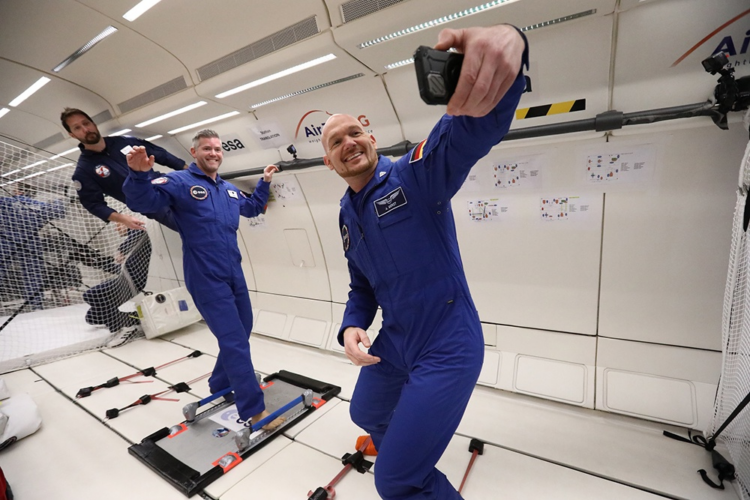First astronaut without a leg John McFall gets clearance to fly to ISS
Published: by .

The European Space Agency has issued a certificate allowing long-term space flights to Briton John McFall, who is preparing to become the first astronaut with a disability, the agency's director of human and robotic exploration Daniel Neuenschwander announced at a press conference at ESA.
As emphasized, the issuance of the certificate was approved by all ISS partners.
McFall lost his leg at 19 in a motorcycle accident and an above-knee amputation. But he had no shortage of spirit, and eight years later he won a bronze medal in the sprint at the Beijing Paralympic Games.
John left sport for medicine: he studied at the surgical department of the Cardiff University Medical School.
He received his Bachelor of Surgery degree in 2014 and became a Fellow of the Royal College of Surgeons in 2016.
ESA's plans to send an astronaut with a disability into space were announced several years ago. It was announced that the agency was ready to invest in adapting space equipment to enable disabled professionals to work fully as crew members.
Individuals with lower limb defects, either congenital or as a result of amputation, were considered for participation in the ESA mission.
John McFall was selected from 257 candidates who decided to participate in the experimental space program.
In 2022, ESA included McFaul in the astronaut reserve. And now it has become known that he has received medical clearance to participate in a long-term mission aboard the ISS.
According to experts, John McFall, now 43, was not chosen as a "paraastronaut" candidate by chance – it is easier to fly a person with an amputation than an astronaut with impaired vision or hearing. In addition, John takes care of his prosthesis himself and does not require special care. It is also important, of course, that he is a surgeon and has a master's degree in biomechanics.
However, it is still unknown when McFall will be sent into orbit. According to media reports, the prosthesis he will fly into space with must undergo testing and meet the same requirements as any equipment delivered aboard the ISS.
Comments